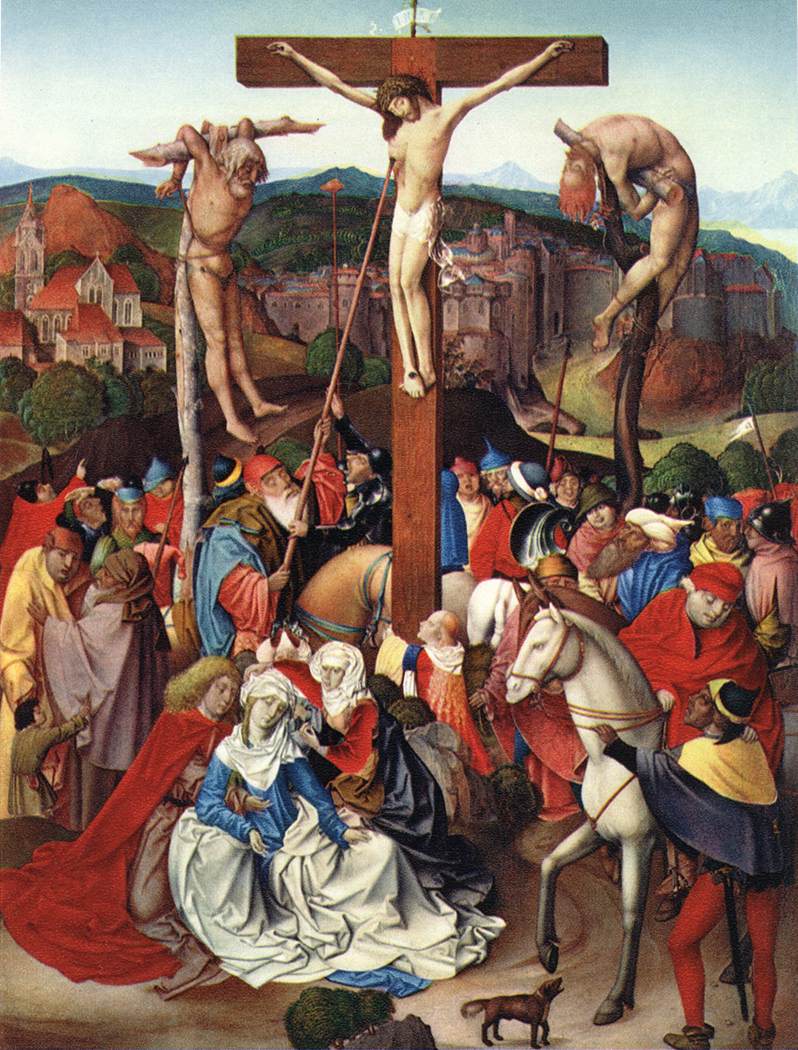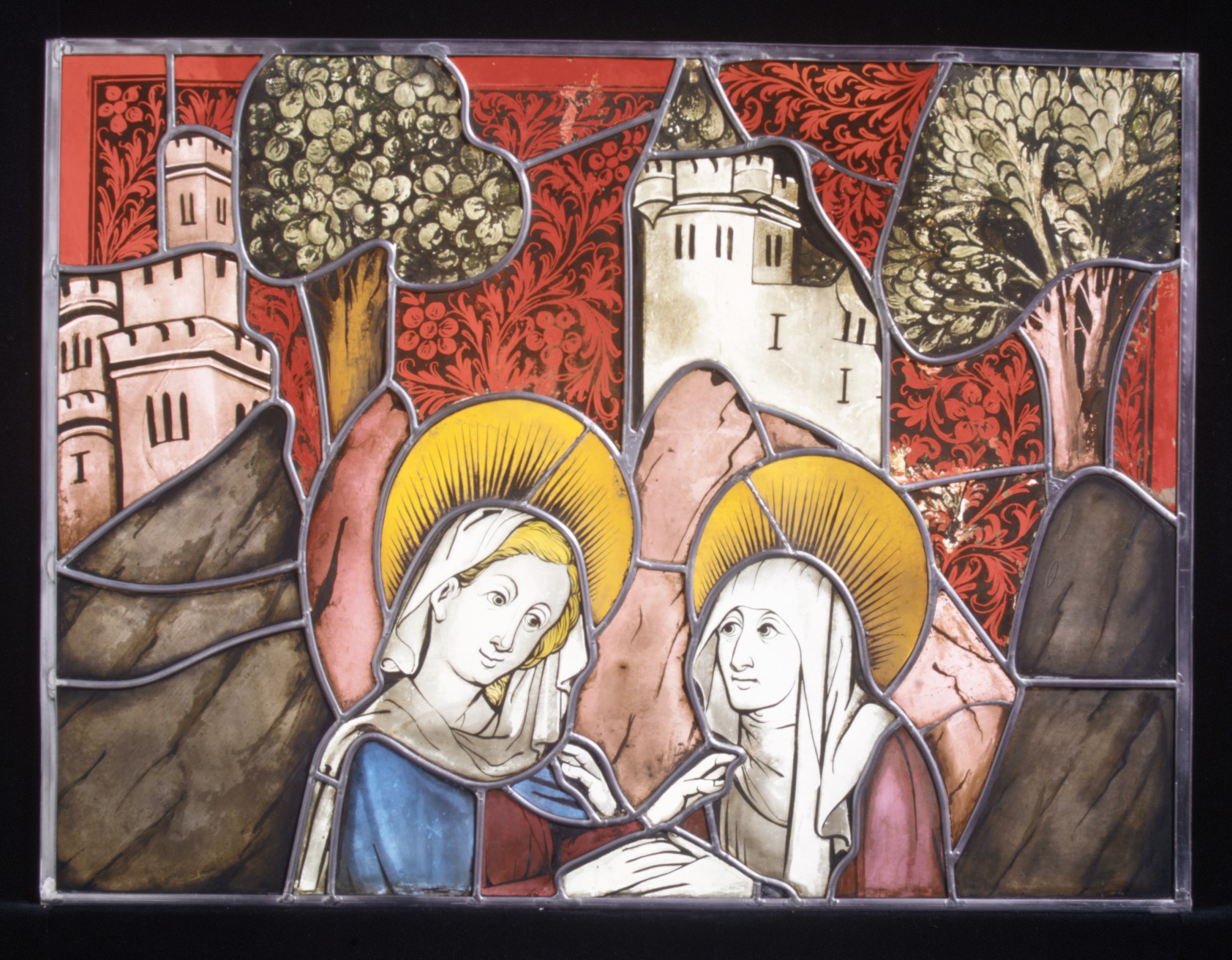|
Rueland Frueauf The Younger
Rueland Frueauf the Younger (c. 1470 – after 1545) was a German Late-Gothic painter. Biography Frueauf was born in Salzburg Salzburg (, ; literally "Salt-Castle"; bar, Soizbuag, label= Austro-Bavarian) is the fourth-largest city in Austria. In 2020, it had a population of 156,872. The town is on the site of the Roman settlement of ''Iuvavum''. Salzburg was founded ..., and later moved to Passau where he lived and worked for the rest his life. He produced primarily paintings, altarpieces, and frescoes for local churches. His father Rueland Frueauf the Elder was also a painter. Frueauf the Younger died in Passau. References 15th-century German painters German male painters 16th-century German painters 1545 deaths 1470 births Gothic painters {{Germany-painter-stub ... [...More Info...] [...Related Items...] OR: [Wikipedia] [Google] [Baidu] |
Gothic Art
Gothic art was a style of medieval art that developed in Northern France out of Romanesque art in the 12th century AD, led by the concurrent development of Gothic architecture. It spread to all of Western Europe, and much of Northern, Southern and Central Europe, never quite effacing more classical styles in Italy. In the late 14th century, the sophisticated court style of International Gothic developed, which continued to evolve until the late 15th century. In many areas, especially Germany, Late Gothic art continued well into the 16th century, before being subsumed into Renaissance art. Primary media in the Gothic period included sculpture, panel painting, stained glass, fresco and illuminated manuscripts. The easily recognizable shifts in architecture from Romanesque to Gothic, and Gothic to Renaissance styles, are typically used to define the periods in art in all media, although in many ways figurative art developed at a different pace. The earliest Gothic art was monumental ... [...More Info...] [...Related Items...] OR: [Wikipedia] [Google] [Baidu] |
Salzburg
Salzburg (, ; literally "Salt-Castle"; bar, Soizbuag, label=Bavarian language, Austro-Bavarian) is the List of cities and towns in Austria, fourth-largest city in Austria. In 2020, it had a population of 156,872. The town is on the site of the Roman settlement of ''Iuvavum''. Salzburg was founded as an episcopal see in 696 and became a Prince-Archbishopric of Salzburg, seat of the archbishop in 798. Its main sources of income were salt extraction, trade, and gold mining. The fortress of Hohensalzburg Fortress, Hohensalzburg, one of the largest medieval fortresses in Europe, dates from the 11th century. In the 17th century, Salzburg became a center of the Counter-Reformation, with monasteries and numerous Baroque churches built. Historic Centre of the City of Salzburg, Salzburg's historic center (German language, German: ''Altstadt'') is renowned for its Baroque architecture and is one of the best-preserved city centers north of the Alps. The historic center was enlisted as a UN ... [...More Info...] [...Related Items...] OR: [Wikipedia] [Google] [Baidu] |
Passau
Passau (; bar, label=Central Bavarian, Båssa) is a city in Lower Bavaria, Germany, also known as the Dreiflüssestadt ("City of Three Rivers") as the river Danube is joined by the Inn from the south and the Ilz from the north. Passau's population is approx. 50,000, of whom about 12,000 are students at the University of Passau, renowned in Germany for its institutes of economics, law, theology, computer science and cultural studies. History In the 2nd century BC, many of the Boii tribe were pushed north across the Alps out of northern Italy by the Romans. They established a new capital called Boiodurum by the Romans (from Gaulish ''Boioduron''), now within the Innstadt district of Passau. Passau was an ancient Roman colony called Batavis, Latin for "for the ''Batavi''." The Batavi were an ancient Germanic tribe often mentioned by classical authors, and they were regularly associated with the Suebian marauders, the Heruli. ''Batavis'' (Passau-Altstadt) was a Roman castrum in ... [...More Info...] [...Related Items...] OR: [Wikipedia] [Google] [Baidu] |
Rueland Frueauf The Elder
Rueland Frueauf the Elder (c. 1440 – 1507) was an Austrian Late-Gothic painter. Biography Frueauf was born in Obernberg am Inn, and lived and worked there most of his life. He primarily painted frescoes in local churches. In 1484 he was appointed as a consultant to work with Michael Pacher on an altarpiece for the Franciscan Order. His son Rueland Frueauf the Younger also became a painter. Frueauf the Elder died in Passau Passau (; bar, label=Central Bavarian, Båssa) is a city in Lower Bavaria, Germany, also known as the Dreiflüssestadt ("City of Three Rivers") as the river Danube is joined by the Inn from the south and the Ilz from the north. Passau's popu ... in 1507. Gallery Rueland Frueauf d. Ä. - Verkündigung an Maria - 4838 - Kunsthistorisches Museum.jpg, ''Annunciation to Mary'' (1490) Cerchia di rueland frueauf il vecchio, madonna in trono tra i ss. giorgio e vigilio col canonico giorgio nothaft, 1490 ca. 01.jpg, Madonna enthroned between Saint George ... [...More Info...] [...Related Items...] OR: [Wikipedia] [Google] [Baidu] |
15th-century German Painters
The 15th century was the century which spans the Julian calendar, Julian dates from 1 January 1401 (Roman numerals, MCDI) to 31 December 1500 (Roman numerals, MD). In History of Europe, Europe, the 15th century includes parts of the Late Middle Ages, the Early Renaissance, and the early modern period. Many technological, social and cultural developments of the 15th century can in retrospect be seen as heralding the "European miracle" of the following centuries. The Perspective (graphical), architectural perspective, and the modern fields which are known today as banking and accounting were founded in Italy. The Hundred Years' War ended with a decisive Kingdom of France, French victory over the Kingdom of England, English in the Battle of Castillon. Financial troubles in England following the conflict resulted in the Wars of the Roses, a series of dynastic wars for the throne of England. The conflicts ended with the defeat of Richard III by Henry VII of England, Henry VII at th ... [...More Info...] [...Related Items...] OR: [Wikipedia] [Google] [Baidu] |
German Male Painters
German(s) may refer to: * Germany (of or related to) **Germania (historical use) * Germans, citizens of Germany, people of German ancestry, or native speakers of the German language ** For citizens of Germany, see also German nationality law **Germanic peoples (Roman times) * German language **any of the Germanic languages * German cuisine, traditional foods of Germany People * German (given name) * German (surname) * Germán, a Spanish name Places * German (parish), Isle of Man * German, Albania, or Gërmej * German, Bulgaria * German, Iran * German, North Macedonia * German, New York, U.S. * Agios Germanos, Greece Other uses * German (mythology), a South Slavic mythological being * Germans (band), a Canadian rock band * "German" (song), a 2019 song by No Money Enterprise * ''The German'', a 2008 short film * "The Germans", an episode of ''Fawlty Towers'' * ''The German'', a nickname for Congolese rebel André Kisase Ngandu See also * Germanic (other) * Germa ... [...More Info...] [...Related Items...] OR: [Wikipedia] [Google] [Baidu] |



